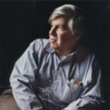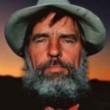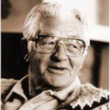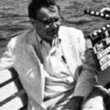NoveList provides detailed suggestions for other authors you might want to read if you enjoyed this book. Suggestions are based on recommendations from librarians and other contributors.
John McPhee and Simon Winchester bridge the gap between the specialist and the average reader with clear, jargon-free prose. They often focus on geology and natural resources, but with any topic, they turn it into an exciting and compelling read, partly by including intriguing people readers can identify with. -- Katherine Johnson
Though much less strident than the acerbic Edward Abbey, John McPhee is also a master of writing about the natural world. Both authors are often present in their stories, though McPhee is generally a catalyst rather than a part of the action. -- Krista Biggs
Farley Mowat and John McPhee are great travel writers, and love to recount their experiences, tell about the people they meet, and discuss the science they find there. Their descriptive and thought-provoking writing leaves an impression and makes readers want to know more. -- Melissa Gray
The relationship between humans and the places they inhabit is a shared theme of these accessible science writers. Both richly describe environments, flora and fauna, and the consequences of natural and artificial changes. They bring a persuasive understanding of natural history and human endeavors to explain our current world. -- Matthew Ransom
Both essayists who have written for the New Yorker offer thoughtful considerations of a larger issue or place. However, Ian Frazier tends to focus on his own reaction to the people and places he encounters, while John McPhee gives voice to the people he meets along the way. -- Autumn Winters
Studs Terkel brings a strong feel for the character and an interest in people's lives to his work. He is a master of getting people to talk about their work and their passions. Like John McPhee, Terkel often uses his own passions as a jumping-off point for his writing. -- Krista Biggs
Edwin Way Teale blends interesting people and settings with a deep affection for and understanding of the outdoors. He describes terrain and season in the natural world and relates intriguing encounters with scientists, naturalists, and others dedicated to its study. John McPhee's readers will appreciate Teale's love for nature. -- Krista Biggs
Sue Hubbell brings a sense of the world to readers. Her tone conveys her delight in the discovery of unusual facts, showing the extraordinary in the ordinary. Like John McPhee, Hubbell reports the stories of scientists and laboratory researchers, giving her work a human scale. -- Krista Biggs
John McPhee and Richard Rhodes blend interesting people with hard facts. They are known for the depth of their research and can make complex science understandable while writing perceptively about the natural world. Both bring a sense of scale to the broader story by relating the lives of the people involved. -- Krista Biggs
Joseph Mitchell, like John McPhee, wrote for the New Yorker. With his genius for description and for capturing a sense of place and time, Mitchell writes from a sentimental perspective about colorful characters, describing the people he encounters and letting their stories propel the narrative. -- Krista Biggs
These authors' works have the appeal factors evocative, comprehensive, and sweeping, and they have the genre "nature writing"; and the subjects "nature," "conservation of natural resources," and "effect of humans on nature."
These authors' works have the genres "science writing" and "nature writing"; and the subjects "geology" and "natural history."





































